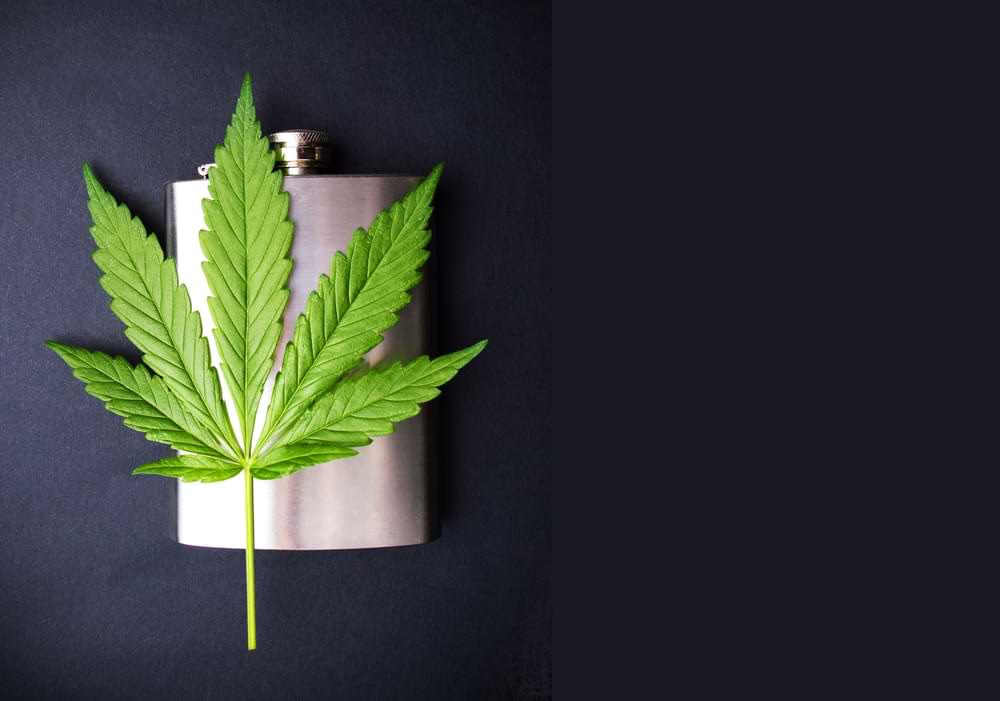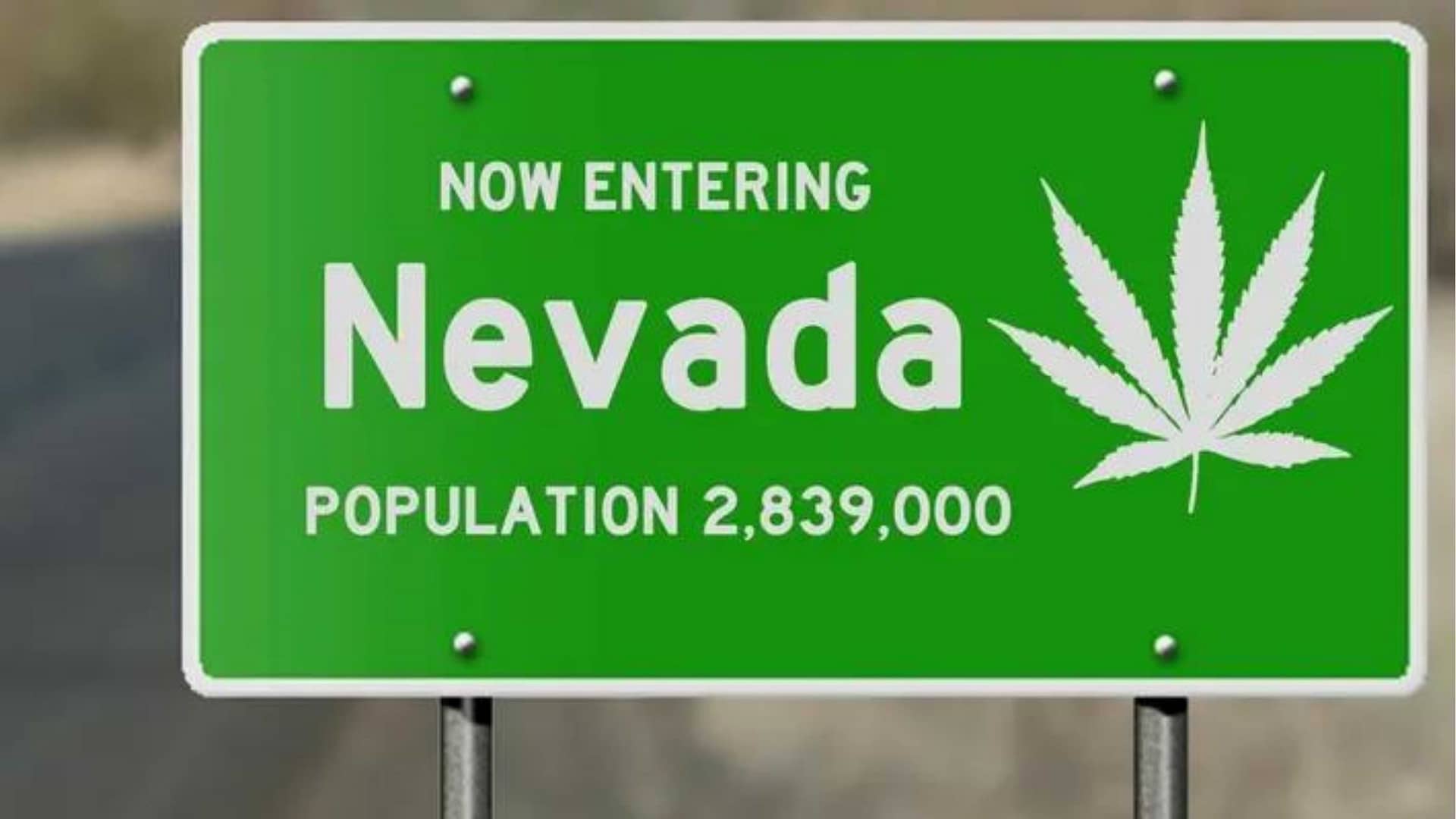In Nevada, adults aged 21 and older have the legal green light to enjoy cannabis, but there are some rules to keep in mind. You can't light up or use cannabis in public places, and you definitely can't use it while you're riding in a moving car, even if you're not the one driving. And guess what? There are some new changes to these rules as of 2023! Now, you can buy more cannabis goodies—up to 2½ ounces of the leafy stuff or a quarter ounce of super-potent THC concentrate. So, let's dive into this guide and explore all the ins and outs of Nevada marijuana laws.
Table of Contents
- 1 The Evolution of Nevada Marijuana Laws
- 2 Current State of Marijuana Legalization
- 3 Possession and Use Regulations
- 4 Legal Possession Limits
- 5 Responsible Consumption
- 6 Medical Marijuana Program
- 7 Access to Medical Cannabis
- 8 Qualifying Conditions
- 9 Marijuana and Driving Laws
- 10 Taxation and Economic Impact
- 11 Challenges and Future Outlook
- 12 Future Trends and Potential Changes
- 13 Conclusion
- 14 Frequently Asked Questions (FAQs)
- 15 Is marijuana legal in Nevada for recreational use?
- 16 What are the qualifying conditions for medical marijuana in Nevada?
- 17 Can I grow marijuana at home in Nevada?
- 18 How are marijuana dispensaries regulated in Nevada?
- 19 What are the penalties for driving under the influence of marijuana in Nevada?
- 20 How is marijuana taxed in Nevada?
- 21 Are there employment opportunities in Nevada's marijuana industry?
- 22 Can tourists purchase marijuana in Nevada?
- 23 What steps are involved in obtaining a marijuana business license in Nevada?
- 24 How have marijuana laws impacted Nevada's economy?
The Evolution of Nevada Marijuana Laws

Nevada's journey toward marijuana legalization has been marked by several milestones. In 2000, the state approved the use of medical marijuana, making it one of the early adopters in the United States. At that time, the focus was primarily on providing relief to patients suffering from various medical conditions. However, it wasn't until 2016 that Nevada took a giant leap by legalizing recreational marijuana, allowing adults aged 21 and older to purchase and possess cannabis for personal use.
This evolution in marijuana laws mirrored a broader shift in societal attitudes towards cannabis. What was once viewed with skepticism and stigmatization has gradually gained acceptance as its potential benefits, both medical and economic, became evident. As Nevada's marijuana laws continued to develop, they played a pivotal role in shaping the state's culture, economy, and legal framework.
Current State of Marijuana Legalization
Nevada currently distinguishes between medical and recreational marijuana laws, each catering to different segments of the population.
Medical Marijuana: Medical marijuana, often referred to as “medical cannabis,” is accessible to patients with qualifying medical conditions. To benefit from medical marijuana, individuals must have such conditions so they could use medical marijuana or CBD for chronic pain, cancer, HIV/AIDS, epilepsy, or other ailments determined by a licensed healthcare provider. Medical marijuana provides these patients with an alternative treatment option that can alleviate symptoms and improve their quality of life.
Recreational Marijuana: For adults aged 21 and older who are not necessarily seeking cannabis for medical reasons, recreational marijuana offers a legal avenue to enjoy the plant responsibly. Recreational use means that individuals can purchase and possess cannabis products for personal enjoyment, but with certain limitations and regulations in place to ensure safety and compliance with the law. Nevada state neighbor have banned the legal use of recreational marijuana in Utah.
Possession and Use Regulations
Legal Possession Limits
Understanding legal possession limits is crucial to staying compliant with Nevada's marijuana laws. As of 2023, adults aged 21 and older can possess up to 2 1⁄2 ounces of marijuana flower or a quarter ounce of THC concentrate. For medical users, possession limits are based on medical needs.
Responsible Consumption
To ensure compliance, remember that using cannabis in public places is prohibited, and it's illegal to use it while in a moving vehicle, even as a passenger. These regulations aim to maintain public safety and well-being.
Medical Marijuana Program

Access to Medical Cannabis
Nevada's medical marijuana program provides legal access to cannabis for patients with qualifying medical conditions. Patients must obtain a certification, and register to receive a medical marijuana card.
Qualifying Conditions
Qualifying conditions include chronic pain, cancer, HIV/AIDS, and more.
Marijuana and Driving Laws
Driving under the influence of marijuana is a serious offense in Nevada, and it poses risks to road safety. The consumption of cannabis can impair motor skills, coordination, and judgment, making it dangerous to operate a vehicle while under its influence.
Nevada law prohibits individuals from driving if they are impaired by any substance, including marijuana. The key points to understand regarding the implications of driving under the influence of marijuana include:
| Key Information | Details |
| Legal Limit | Nevada has established a legal limit for the presence of THC, the psychoactive compound in cannabis, in a person's blood. If a driver's blood contains 2 nanograms per milliliter or more of active THC or 5 nanograms per milliliter or more of metabolite, they are considered to be impaired. |
| Penalties | Penalties for driving under the influence of marijuana can include fines, license suspension, mandatory participation in DUI school, and, in some cases, imprisonment. |
| Testing Procedures | Law enforcement officers in Nevada use various methods to determine impairment, such as field sobriety tests and blood tests. Refusing to take a blood test can result in additional penalties. |
| Zero Tolerance for Minors | Nevada has a zero-tolerance policy for drivers under the age of 21. Any detectable amount of marijuana in their system is grounds for DUI charges. |
Taxation and Economic Impact
The taxation of marijuana sales in Nevada plays a vital role in generating revenue for various state initiatives and programs. Understanding the tax structure is essential for consumers and businesses involved in the cannabis industry.
| Taxation Components | Details |
| Excise Tax | Nevada imposes an excise tax on the wholesale sale of marijuana products. This tax is typically paid by cultivators and manufacturers, and it is based on the type of product and its weight or potency. |
| Sales Tax | In addition to the excise tax, consumers pay a standard state sales tax when purchasing marijuana products at dispensaries. The sales tax rate vary by location within the state. |
| Local Taxes | Local jurisdictions in Nevada have the authority to impose additional taxes on marijuana sales. These taxes can vary significantly depending on the city or county where the sale occurs. |
| Revenue Allocation | Revenue generated from marijuana taxes in Nevada is allocated to various programs and initiatives. This includes funding for education, public health, law enforcement, and substance abuse prevention. |
Challenges and Future Outlook
While the legalization of marijuana has brought numerous benefits to Nevada, it has also presented challenges in terms of implementation and regulation. Some of the key challenges include:
1. Federal Conflict: Marijuana remains illegal under federal law, creating a conflict between state and federal regulations. This can impact banking, taxation, and other aspects of the cannabis industry.
2. Regulatory Complexity: The complex and evolving nature of marijuana regulations presents challenges for businesses aiming to comply with state and local laws.
3. Public Health Concerns: As marijuana use becomes more widespread, concerns about public health and safety, particularly among youth, have emerged. Striking the right balance between access and regulation is an ongoing challenge.
4. Black Market Competition: The persistence of the black market for marijuana poses challenges to legal businesses and state revenue collection efforts.
5. Social Equity: Ensuring that the benefits of the marijuana industry are distributed equitably and addressing historical disparities related to cannabis convictions are ongoing challenges.
Future Trends and Potential Changes

The landscape of marijuana legislation is dynamic, with ongoing developments and potential changes on the horizon. Some of the future trends and areas of potential change in Nevada's marijuana laws include:
1. Federal Legalization: The possibility of federal legalization or reform of marijuana laws have a significant impact on the industry's trajectory.
2. Expanding Product Offerings: The legalization of new product categories, such as edibles and concentrates, continue to evolve based on consumer demand and safety considerations.
3. Social Equity Programs: Nevada explore and expand social equity programs aimed at addressing historical disparities and ensuring equitable access to the benefits of the cannabis industry.
4. Research and Education: Continued research into the medicinal properties of cannabis and public education efforts shape the perception and understanding of marijuana.
5. Licensing and Compliance: As the industry matures, licensing and compliance requirements become more streamlined and standardized.
Conclusion
Nevada has made rules about marijuana. If you're 21 or older, you can use it, but there are strict rules to follow. These rules are to keep everyone safe. The marijuana business has created jobs and brought in money, but there are still some problems like federal laws and safety concerns. In the future, things might change depending on new laws and fairness for everyone. So, it's important to know and follow the rules if you want to use marijuana in Nevada.
Frequently Asked Questions (FAQs)
Is marijuana legal in Nevada for recreational use?
Yes, recreational marijuana use is legal for adults aged 21 and older in Nevada.
What are the qualifying conditions for medical marijuana in Nevada?
Qualifying conditions include chronic pain, cancer, HIV/AIDS, epilepsy, multiple sclerosis, and others.
Can I grow marijuana at home in Nevada?
Yes, you can grow a limited number of marijuana plants at home for personal use, subject to specific regulations.
How are marijuana dispensaries regulated in Nevada?
Dispensaries are subject to stringent regulations, covering licensing, security, and product quality.
What are the penalties for driving under the influence of marijuana in Nevada?
Penalties for impaired driving can include fines, license suspension, and potential jail time.
How is marijuana taxed in Nevada?
Marijuana sales in Nevada are subject to state and local taxes, contributing to various state programs.
Are there employment opportunities in Nevada's marijuana industry?
Yes, the industry has created jobs in cultivation, retail, and ancillary businesses.
Can tourists purchase marijuana in Nevada?
Yes, tourists aged 21 and older can legally purchase and possess marijuana in Nevada.
What steps are involved in obtaining a marijuana business license in Nevada?
The licensing process includes several steps, such as background checks, fees, and compliance with regulations.
How have marijuana laws impacted Nevada's economy?
The marijuana industry has had a positive economic impact, generating revenue and boosting tourism.

MS, RD
Laura Reynolds is a registered dietitian (RD) with extensive experience in counseling individuals on adopting healthy dietary habits. Her well-researched and evidence-based reviews reflect her commitment to promoting overall wellness through proper nutrition.













+ There are no comments
Add yours